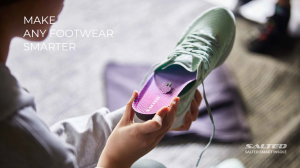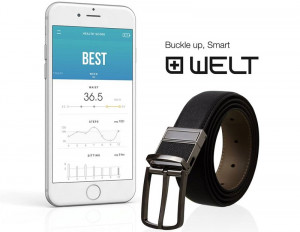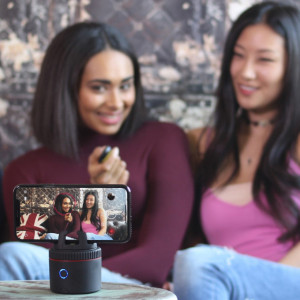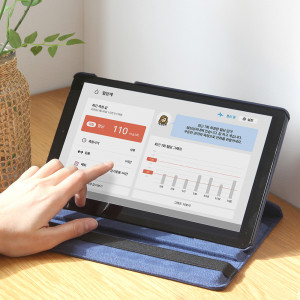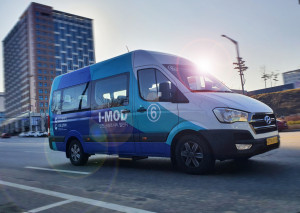
The Daegu Center for Creative Economy and Innovation (Daegu CCEI) was founded in 2014 through the government startup accelerator program in Daegu city, the fourth-largest one after Seoul, Busan and Incheon. It is the first center of its kind in South Korea. Since its launch, it has been promoting the development of startups, the nation’s newest growth engine, in the Daegu city region. In partnership with the Daegu Samsung Creative Campus, an open innovation hub focusing on technology, culture and design, Daegu CCEI is successfully bolstering employment growth and new business in Daegu.
Daegu CCEI, with the support of SAMSUNG, promotes early startup growth in a variety of sectors. This includes startups in ICT, social ventures, energy, manufacturing, and the bio‧health care industry. In particular, bio‧health care is a key strategic industry in the Daegu Province.

The center offers various investment and assistance programs for growing startups. Some notable programs include the “Daegu Medical Startup Accelerator” for bio‧health care startups, the “Daegu Youth Social Venture” promoting social enterprises and sustainable youth job creation, and the “Daegu Startup Leaders Forum (DSLF).” to link startups with high growth potential to a wider regional-based investment ecosystem that can provide angel investment and support.
While many programs focus on early-stage support for new startups, Daegu CCEI also works to back promising startups throughout all stages of their growth. One major program that accomplishes this is the “C-Lab Acceleration Program”, which is operated in collaboration with Samsung Electronics, Daegu Metropolitan City, the Ministry of SMEs and Startups, and Inlight Ventures. The program backs and provides assistance to partnered startups from their early beginning up until they become a listed company.
As a guiding mission, the Daegu CCEI strives to support the entire cycle of startups from the initial idea of preliminary unicorn companies to their scale-up into important established businesses. The Daegu CCEI seeks to accomplish this goal by pairing startups together with related agencies, large corporations, research institutes, universities, and local governments in a growth-investment network. Through cooperation, all parties can establish win-win partnerships and act as regional accelerators.
Body type analysis using smart shoes: SALTED Co., Ltd
SALTED Co., Ltd, which is a spin-off company of Samsung Electronics, is a healthcare company that provides somatotype analysis, walking pattern analysis, and visualized motion data through IoT-equipped smart insoles.
The biggest feature of this product is its high cost-effectiveness. While the high price range of health care devices was a barrier to popularization, smart shoes have excellent cost-effectiveness and can be popularized among consumers.
The company launched “Digital Balance Training Shoes (Powered by SALTED)” in collaboration with the shoe brand ‘Descant.’ It can offer the balance analysis solution with independently developed pressure sensors in smart insole, which is linked with the user’s smartphone.
Beyond simple step-based activity analysis, the company is helping users’ exercise in the right posture by providing audio feedback guideline based on running techniques and exercise-specific balance information, which is expected to prevent injury as well as enable efficient exercise.
Meanwhile, the Smart Shoes, launched in 2018, are currently in use in more than 300 fitness centers and 10 sports events.
Metabolic syndrome checking health wearables that combine buckles and devices: WELT Co., Ltd
An important trend in startup ecosystem is the development of health care devices. Among the start-up companies that the Daegu Center for Creative Economy and Innovation is incubating, there are several companies that have already surpassed the level of incubating and have been recognized by the U.S. funding platforms such as Kickstarter and Indiegogo.
Welt is a health wearable device, a combined type of buckles and devices, which check metabolistic syndrome.
Welt Co., Ltd. is a company that combines waist belts with a healthcare device to identify users’ lifestyle and health conditions and manage their health in daily life.
The device can detect users’ waist circumference, amount of walking a day, amount of sitting time, amount of food intake, and calories. And then, it let users know the arranged data through smartphone applications.
CEO Kang Sung-ji of Welt Co., Ltd. started the company in the form of spin-off in July 2016 after winning the competition for Samsung Electronics’ in-house venture program in 2014 with “Welt,” a smart belt that manages abdominal obesity. The reason why he started to design his device in a belt type was simple. He said he wanted to combine what everyone was already wearing with a health care device, and that the biggest lump of iron was a belt buckle. Furthermore, Buckle is a possible predictive force because it is the doctor who is the most direct indicator of abdominal obesity, one of the symptoms of metabolic syndrome.
Welt made his debut at the Internationale Funk Austellung (IFA) in Berlin, Germany, in 2016, and achieved a pre-Order amount of $73,000 on Kick-Starter, a leading U.S. cloud funding site. Welt, meanwhile, won the Innovation Award at the CES in Las Vegas in January of this year for his new product “Smart Belt Pro.” It is characterized by an additional ‘preventive’ feature compared to the existing products.
While many wearable products, including Apple Watch, have introduced the fall “detection” function, Welt’s “Smart Belt PRO” focuses on predicting and preventing the fall risk by analyzing the collapse of the user’s walking pattern, according to the company.
Smart filming solution with smartphone: 3i Inc.
The growth of 3i Inc., a startup company selected as the 5th generation of the C-LAB of the Daegu Creative Economy Innovation Center, is quite explosive. 3i Inc, established in early 2017, achieved sales of about $3.4 million last year, just two years after its establishment, and expects sales of $15 million from $11 million this year. It is growing rapidly in the B2C market, which targets ordinary consumers, beyond belief that it is a startup company.
The key to the company is the smart hardware device ‘Pivo’. Pivo is a smart hardware device with the slogan “Just Shoot with Smart Photographer.” By putting it on the smartphone, users can easily create unique photo and video contents.
‘Pivo’ can rotate 360 degrees to the left and right, which is controlled through smartphone application. The app is equipped with facial and object recognition functions, making it easy for creators to film while moving. Diverse modes with different twelve functions – time labs, 360-degree filming, double take, and 50/50 filming – makes it easier to create various contents such as shooting online shopping mall products and making V-log videos. It is also a portable one with small volume so that you can carry it outside while traveling. It seems to be mainly needed for influencers in social network services, travel content creators, early adopters, and business.
The name ‘Pivo’ became known to consumers by crowdfunding – Kickstarter and Indiegogo – in November 2018, and it sold more than $1 million in about eight months and became famous for word of mouth. It is said that more than 10,000 sponsors from more than 90 countries participated in the global crowdfunding of ‘Pivo’.
Only ‘3i Inc.’, which challenges global companies, is fully aware of its role as a Daegu-based company. Currently, it plans to build its own factory in Daegu.
IoT technology for better human life: OPUS ONE Inc.
Internet of Things (IoT) refers to a technology to connect and exchange data with other physical ‘things’ or devices and systems over the Internet. A refrigerator connected to the Internet could be an example. We can check the expiration date of food and implement recipes through the display attached to the refrigerator door. We might be thinking of IoT like magic: something that changes human life more leisurely and dramatically. However, IoT smart products combined with a better human will make people feel warm.
IoT–equipped smart devices can make people feel comfortable. For example, there are people who frequently lose their umbrellas. ‘Jonas’ of Opus One Inc. was created for these people. The smart umbrella ‘Jonas,’ with IoT technology automatically informs us how the weather would be and whether the user should carry an umbrella or not. Jonas updates weather information by borrowing the network of the user’s smartphone which was connected with the gadget through Bluetooth function.
In addition, it has functions to alarm phone calls and text messages and to find the user’s phone if you don’t know where it is. If the distance between the mobile phone and the umbrella is more than 10 meters, the device detects it and alarms it to the user to prevent loss of the phone.
Another notable product of ‘Opus One Inc’ is ‘Da Vinci’. This product is a home security cradle product that utilizes a waste smartphone with IoT technology, which is available to monitor for home security and pet monitoring. Any waste smartphone can be used with ‘Da Vinci’ in any house.
The musical term ‘Opus One’ means the No. 1of works that composers attach to their works. Just as masters who create works with genius inspiration created their first work with passion and dedication, they named their company ‘Opus One Inc.’ to include creativity and passion in each product development.
Enjoy creative one-day tattoos with a mobile tattoo printer: Prinker Korea Inc.
Tattooing is a medical practice in Korea, meaning it is legally prohibited for non-medical people to tattoo a person’s body. So are all Korean tattooists, who are known to have a lot of creative tattooists at the moment, all medical practitioners?
Of course not. The number of young people who are fascinated by tattoos is steadily increasing and creative tattoos are covering the whole body. Ironically, mobile tattoo printers have been developed in Korea, where tattoos are banned.
Founded in 2015, ‘Prinker Korea Inc’ is a company that makes mobile tattoo printers. The printer can instantly implement tattoos of sophisticated designs on the body by using inkjet printing technology. One notable thing is that the ink in it is made from cosmetic ingredients. Fashion leaders around the world have been impressed by the fact that the ink can be made from cosmetics materials that are harmless to the human body and can be easily erased.
Although mobile tattoo printers are unfamiliar products, they are actively used in parties and festivals. Last year, sales in 2019 were about $1.2 million. This year, despite the global market being hit hard by the COVID-19 pandemic. The company expects sales of $1.5 million in 60 countries around the world. The reason behind the surge in sales was that it was selected as Amazon’s innovative product development program, Launchpad, and exposed to Amazon’s main screen.
Amazon Launchpad is a program that helps innovative products make inroads into foreign markets, and if selected, it will receive consulting and support from Amazon regarding product promotion, sales, and delivery. The Korea International Trade Association was selected as the Amazon Launchpad by supporting ‘Prinker Korea Inc.’ which launched the world’s first disposable tattoo printer.
Meanwhile, ‘Prinker Korea Inc.’ has the technology to manufacture safe cosmetic ink that can be easily erased and is harmless to the human body. With cosmetics ink, it is expected that sales will increase sharply around the world once the U.S. Food and Drug Administration (FDA) and the European Cosmetics Certification (CPNP) are certified and the Coronavirus calms down.
Shuttle bus solution ‘Hello Bus’, platform for global market: Ciel Co., Ltd
‘Hello Bus’ of Ciel Co., Ltd, founded in 2012, is a Location Based Service (LBS) solution that is specialized in shuttle buses.
‘Hello Bus’ provides convenient services for shuttle bus companies and passengers, by utilizing Internet of Things(IoT), vehicle-only M2M terminals installed in vehicles, LTE black boxes, anti-fraud systems using NFC, and passenger identification terminals using Beacon.
‘Hello Bus’ is currently being released and supplied as a vehicle IoT service and LTE communication-type black box product through LG U+ in Korea. And in cooperation with SKT, it is working on a project to build commuting bus solutions.
Currently, Ciel Co., Ltd. supplies “Hello Bus” solutions to companies and organizations that require the operation of shuttle buses such as commuting buses of large Korean companies, education offices, kindergartens, and daycare centers. Meanwhile, Ciel Co., Ltd. is also in the process of establishing a platform to enter the global market for ‘Hello Bus’.
Kayla Hong
Asia Journal



